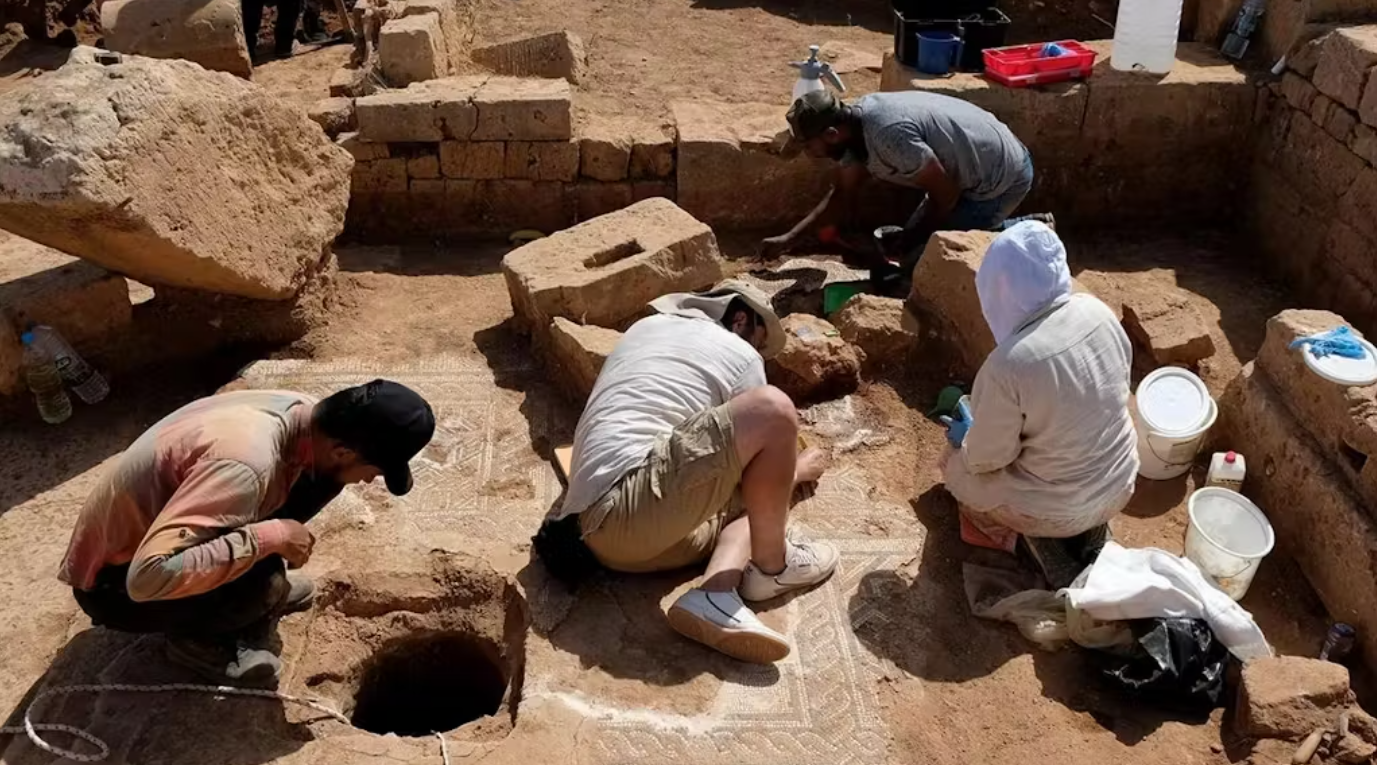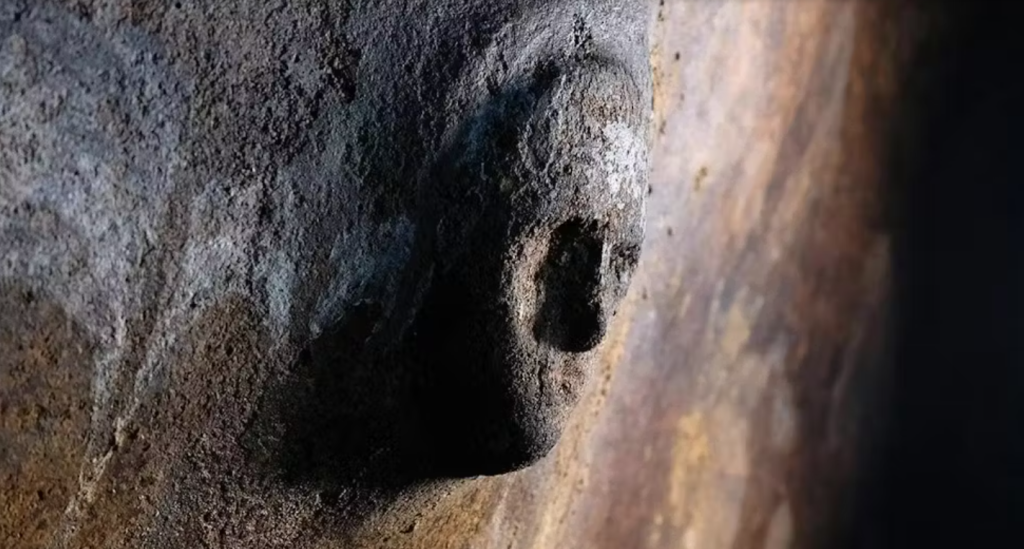Archaeologists excavating a Roman villa in Libya have uncovered an enigmatic stone face.
Others are reading now
Archaeologists have uncovered a Roman villa in the ancient city of Ptolemais, located in present-day Libya. Among the findings, the team discovered an enigmatic stone face that does not appear to align with traditional Roman art.
This intriguing discovery has sparked curiosity among researchers, as the face may offer valuable insights into the villa’s origins and the cultural blending that occurred in the region during its time.
A Magnificent Roman Villa
The luxurious villa was excavated by archaeologists from the University of Warsaw.
Designed around a colonnaded courtyard, the villa features advanced architectural elements, including a sophisticated rainwater collection system that directed water into two underground cisterns. Inside, remnants of a staircase, a kitchen, and intricate floor mosaics.
Also read

It is within this sophisticated water system that the mysterious stone face was found, carved into one of the cisterns.
Researchers speculate it may have served as a symbolic mask, possibly connected to local religious practices.
A Blend of Cultures
Ptolemais was originally founded in the 3rd century BCE by the Ptolemaic dynasty, descendants of one of Alexander the Great’s generals. The city later flourished under Roman rule, becoming an important hub in North Africa.
Dr. Piotr Jaworski, leader of the Polish excavation team, suggests that the villa may date back to the early years of Libya’s incorporation as a Roman province. The stone face could reflect the influence of local Libyan traditions, hinting that the villa’s owner or its craftsmen might have been of Libyan origin.
“Thanks to epigraphic sources, we know that in the Greek city-state of Cyrene, the local Libyan elite quickly assimilated into Hellenistic culture,” said Jaworski in a press release.
However, he emphasized that these interpretations are only speculative for now.

